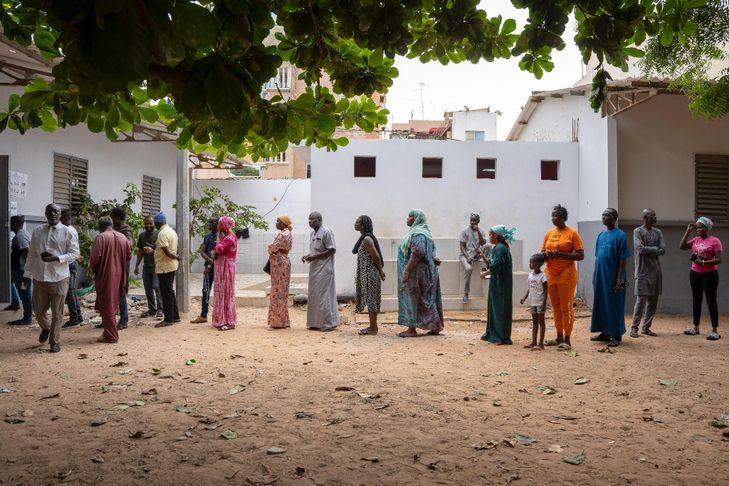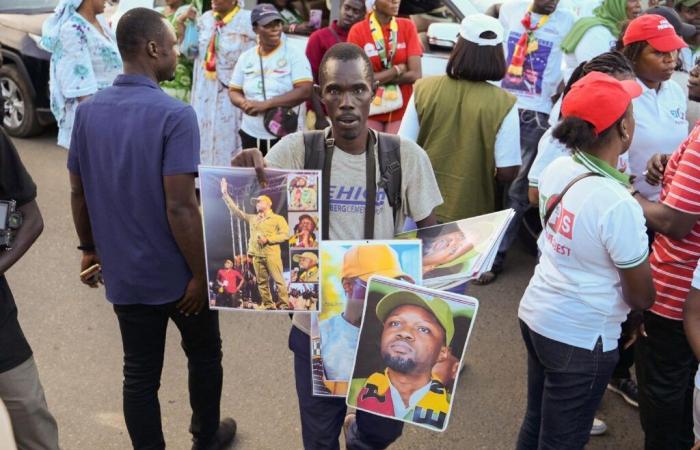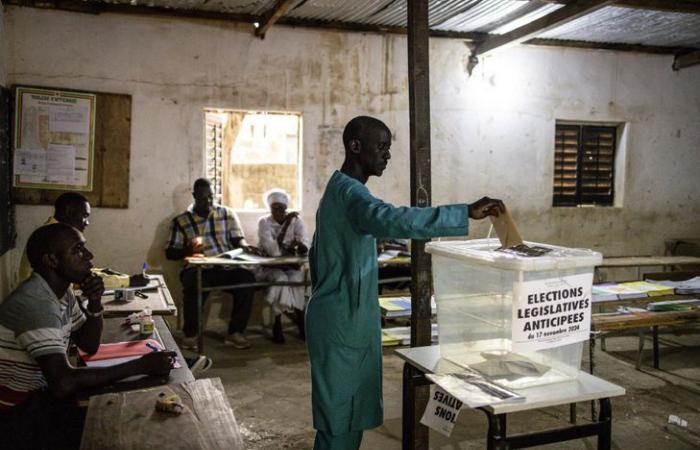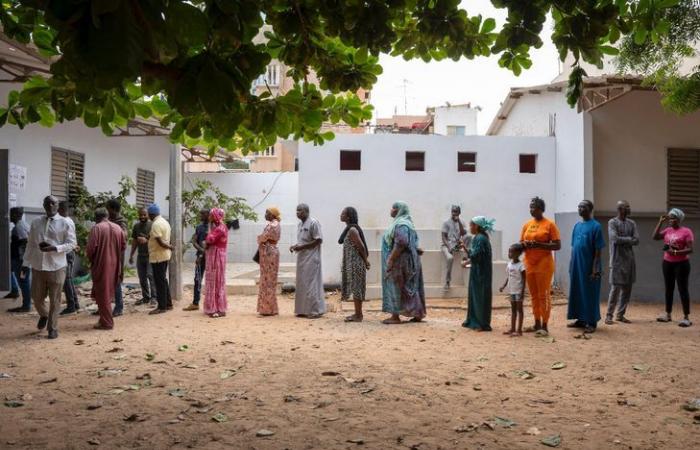The ruling party in Senegal is heading the day after the legislative elections towards an overwhelming majority in Parliament which would give President Faye and Prime Minister Sonko the means to implement the agenda of rupture and social justice which propelled them to power there at eight months.
Pastef finds itself with three quarters of the seats in the National Assembly, according to projections from various media based on provisional partial results.
A “raid” which is credited to Prime Minister and party leader Ousmane Sonko, who was still in prison eight months ago and would now have free rein to begin implementing his project.
The electoral bodies have until Tuesday evening to publish the provisional official results at the department level.
“The priority is to change policies and have an impact on the household basket”says teacher researcher El Hadji Mamadou Mbaye, referring to the cost of living and a population that struggles daily to find work and make ends meet.
In addition to the multiple daily emergencies, the executive is also expected on the numerous promises he has made in the name of a “left-wing pan-Africanism”: vote on the 2025 budget, repeal of a contested amnesty law, renegotiation of contracts deemed unfair with foreign partners or, beyond that, transformation of the State and its justice system.
The daily newspaper L’Observateur also cites among “the hot issues awaiting the 15th legislature” the passing of a law toughening penalties against homosexuality.
Senegalese Prime Minister Ousmane Sonko during a press conference in Dakar on September 26, 2024 / SEYLLOU / AFP/Archives
Mr. Sonko’s right-hand man, Bassirou Diomaye Faye, was elected president in the first round in March. Devoid of any executive experience, he was pulled to the top by the enthusiasm and aspiration for change of a young population tested by three years of economic crisis and political confrontation between the old power and Mr. Sonko.
For eight months since the presidential election, the placid Faye and the fiery Sonko who should have been in his place if his candidacy had not been invalidated and he was appointed Prime Minister, have lived a conflictual cohabitation with an Assembly still dominated by the old majority.
Mr. Faye dissolved it as soon as constitutional deadlines allowed, in September, causing early legislative elections on Sunday.
From now on, MM. Sonko, Faye and Pastef “have everything to work with”said M. Mbaye.
RFM radio credits Pastef with 119 seats out of 165, the citizen platform Vie publique with 129, and the Dakaractu information site with 131 deputies.
But the projections announce the possible victory “overwhelming” that Mr. Sonko demanded.
The government daily Le Soleil headlines on “the Pastef wave”.
Senegal is the sonko » (“Senegal is Sonko” in Wolof), writes the newspaper Le Quotidien, although critical of power, diverting the slogan with which Pastef convinced presidential voters that voting for Bassirou Diomaye Faye was like vote for Mr. Sonko.
Electoral coherence
A voter votes for the legislative elections in Senegal, November 17, 2024 in Dakar / JOHN WESSELS / AFP
The opposition was scattered. Forty-one lists were in competition. The opposition campaigned by taking up the grievance formulated by a certain number of Senegalese according to which, for eight months, Mr. Sonko spoke a lot and acted little. The person concerned defends himself by arguing the state in which he and Mr. Faye found the country, and the multiple resistance to his ambition to change practices and the system.
Analysts point out that, as is traditional, voters aligned their vote in the presidential and legislative elections.
They agree on the fact that Mr. Sonko is the master of the game, especially since he will be able to count on an entirely acquired majority since Pastef campaigned under his sole banner without forming an alliance.
Even more than before, “it is Ousmane Sonko who will continue to dictate the way of running the country”more than the head of state himself in a system nevertheless considered hyper-presidentialist, says teacher-researcher Mbaye.
The head of state “only has this legitimacy to be president thanks to Sonko”he said.
Mr. Sonko has a lot to do. The cost of living remains a major concern for the population, as does unemployment which reaches more than 20%. The new leaders are in turn confronted with the wave of these hundreds of compatriots who leave each month in canoes to seek a better future in Europe.

Voters wait to vote in the legislative elections in Senegal, November 17, 2024 in Dakar / MARIE RUWET / AFP
Public accounts are in the red and the International Monetary Fund has just suspended an aid program. Two rating agencies have unfavorably revised Senegal’s sovereign rating or outlook. Various projects are blocked and the private sector is awaiting payment of state debts.








